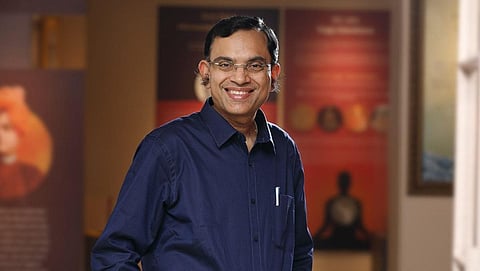

BENGALURU: This professor from Indian Institute of Technology, Kharagpur, has dedicated his life to developing healthcare devices for use in rural areas. Meet Prof Suman Chakraborty, also a recipient of this year’s Infosys Prize, who has spent several years working on various diagnostic tools, making use of simplified scientific concepts to develop devices that can be used by a lay person in a resource poor area.
“Healthcare for the under-served is a huge area of work. My main focus is to develop point of care diagnostic devices so that people who are in extremely remote locations don’t need to approach large resourced diagnostic centres. It’s not just a question of affordability, but also accessibility, since even if the money is there, these centres aren’t widely available in all places,” he told TNSE.
Prof Chakraborty makes use of his background as a mechanical engineer in focusing on fluid mechanics to develop devices to allow for easier detection of diseases, similar to diagnostic tools that would be available in large research centres. “We are innovating solutions that are not just point of care, but something I term as ‘extreme point of care’, meaning that this tech is available even in extremely resource poor settings without any compromise in performance or accuracy, and it can be used by a lay person or a minimally trained frontline worker,” he said.
Prof Chakraborty’s work ranges from developing devices that are able to detect haemoglobin levels, which can be used for several applications, to developing diagnostic tools for Covid-19 and oral cancer. “Oral cancer is one of the biggest problems faced by Indians. It’s one of the top five killer cancer. The challenge is that most of the oral cancer patients come from areas like these, due to tendencies of indulging in chewing tobacco or paan (betel leaf),” he said.
The device he developed for its detection is a simple camera that detects blood flow and heat in the mouth, where unusually high blood flow could indicate rapid multiplying of cells, something that is common in oral cancer. What sets his work apart is his use of artificial intelligence (AI) and machine learning. “These devices also make use of AI to make the readings more accurate because there are several healthcare technologies that exist, but do not give accurate readings,” he said.